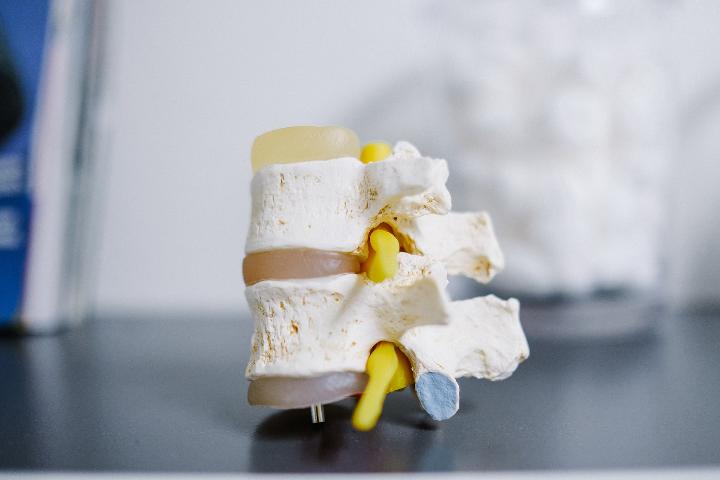Can Potassium Improve Your Bone Health?

When maintaining good health, we often focus on essential vitamins and minerals. While most people know calcium and vitamin D are crucial in bone health, potassium is another vital nutrient often overlooked. Potassium is an essential mineral that helps maintain proper bodily functions and plays a significant role in improving and maintaining bone health. In this article, we will explore the impact of potassium on bone health and how you can incorporate it into your diet to support strong and healthy bones.
Key Takeaways
- Potassium plays a significant role in improving and maintaining bone health, alongside calcium and vitamin D.
- Adequate potassium intake enhances calcium absorption, contributing to bones' overall strength and density.
- A high-potassium diet helps reduce bone loss by preserving calcium levels and mineral density.
- Potassium supports bone formation by regulating the activity of osteoblasts, the cells responsible for bone growth and development.
- Including potassium-rich foods such as fruits, vegetables, legumes, whole grains, and dairy products are crucial for supporting bone health.
- Maintaining a balanced intake of other essential nutrients and adopting a healthy lifestyle further promotes optimal bone health.
Understanding the Importance of Bone Health
Our bones provide structure to our bodies and protect vital organs. They also act as a reservoir for essential minerals like calcium, phosphorus, and potassium. Maintaining optimal bone health is crucial to prevent conditions like osteoporosis and fractures, especially as we age. While calcium and vitamin D have long been associated with bone health, recent research suggests that potassium also plays a vital role.
What is Potassium?
Potassium is an essential mineral that acts as an electrolyte in the body. It helps regulate fluid balance, muscle contractions, and nerve function and maintains normal blood pressure levels. Potassium is primarily obtained through our foods, which our body uses for various physiological processes.
The Relationship Between Potassium and Bone Health
Recent studies have shown a positive correlation between potassium intake and bone health. Potassium works in conjunction with other minerals like calcium and magnesium to promote healthy bone development and maintenance. While the exact mechanisms are still being researched, it is believed that potassium enhances calcium absorption, reduces bone loss, and supports bone formation.

How Potassium Affects Bone Health
Potassium's impact on bone health goes beyond its basic bodily functions. It can enhance the strength of your skeletal framework and safeguard the density of your bones. Let's delve deeper into how potassium positively influences bone health, ensuring that your foundation remains resilient and vibrant.
Enhances Calcium Absorption: A Synergistic Dance of Nutrients
Picture calcium as the cornerstone of bone health, and potassium as its trusty companion, ensuring its optimal absorption within the body. Calcium is a vital mineral that forms the building blocks of our bones. However, its journey to fortifying our skeletal structure would only be complete with the assistance of potassium.
Potassium acts as a catalyst, triggering vitamin D activation, a crucial player in calcium absorption in our intestines. When potassium and vitamin D team up, they create a harmonious environment within our bodies, facilitating the efficient assimilation of calcium. By ensuring this seamless absorption process, potassium becomes an unsung hero, silently working to fortify our bones' overall strength and density.
Reduces Bone Loss: Battling the Tides of Time
As we journey through life, our bones face the inevitable challenge of age-related bone loss. However, with adequate potassium intake, we can defy the march of time and slow down this natural process. Scientific studies have illuminated the potential of a high-potassium diet in reducing calcium loss through urine.
By preserving the precious mineral density within our bones, potassium acts as a stalwart defender, protecting us against the vulnerabilities that time imposes. As we consume potassium-rich foods, we arm ourselves with a formidable shield, ensuring that our bones remain resilient and resistant to the wear and tear of life.
Supports Bone Formation: Nurturing Growth and Vitality
In the intricate world of bone metabolism, potassium dons yet another role – that of a guardian nurturing the growth and development of new bone tissue. Osteoblasts, the cells responsible for bone formation, find solace in the presence of adequate potassium levels. These mighty cells dance to the tune set by potassium, working diligently to weave new strands of bone, layer by layer.
With the guiding hand of potassium, our bones embark on a journey of continuous renewal and vitality. As we maintain optimal potassium levels, we ensure that the symphony of bone formation plays on, allowing our skeletal system to flourish and thrive.
Embracing Potassium for Resilient Bones: A Journey of Empowerment
As you embark on your quest for strong and healthy bones, remember potassium's immense power. It is not merely a mineral on the periodic table; it is a catalyst, an ally, and a guardian of bone health. By embracing potassium-rich foods and incorporating them into your diet, you empower yourself to build a solid foundation to weather the storms of time.
Let potassium be your steadfast companion on this journey, as it enhances calcium absorption, reduces bone loss, and supports the formation of new bone tissue. You and potassium can create a symphony of strength, resilience, and vitality that will carry you through life with grace and confidence.

The Role of Potassium in Bone Mineral Density
Potassium, an essential mineral crucial for overall health, extends its influence to the realm of bone health. The measure of bone strength, known as bone mineral density (BMD), becomes a focal point in understanding potassium's impact. Recent studies have shed light on the remarkable association between a high intake of potassium and improved BMD.
In a nationwide Korean population study, researchers discovered a compelling link between dietary potassium intake and enhanced BMD in older men and postmenopausal women. Dividing the participants into tertiles based on potassium intake, the group with the highest potassium intake exhibited significantly higher BMD in the total hip and femur neck compared to those in lower tertiles. This finding underscores the potential of potassium to fortify our bones, offering them an extra layer of strength and resilience.
Moreover, a study published in the esteemed New England Journal of Medicine echoed the positive effects of potassium on bone health. The study explored the impact of potassium bicarbonate, revealing its ability to reduce bone resorption—the process by which bone is broken down—and promote bone formation. These findings further accentuate the profound role that potassium plays in enhancing bone mineral density and bolstering our skeletal framework.
Potassium's Impact on Acid-Base Balance and Bone Health
The intricate relationship between potassium and bone health extends beyond the realm of minerals. Potassium salts possess a unique ability to neutralize bone-depleting metabolic acids, similar to how acid rain erodes a limestone statue. In essence, the selected potassium compounds act as guardians, shielding our bones from the corrosive effects of these acids.
A multitude of population-based studies have consistently highlighted the positive association between a high intake of base-forming potassium and magnesium-rich foods and bone health. These studies illuminate the critical role played by potassium in maintaining a delicate acid-base balance within our bodies, preventing the erosion of bone tissue. Through our dietary choices, we can empower our bones, providing them with the alkaline support they need to thrive.
The Synergy between Potassium and Calcium for Bone Health
While calcium takes center stage in the narrative of bone health, it is important to recognize the supporting cast of vital minerals. Potassium emerges as a significant player, joining forces with calcium to fortify our skeletal structure. Research suggests that individuals who consume high amounts of potassium from fruits and vegetables tend to exhibit stronger bones.
By increasing our intake of potassium-rich foods, we can potentially improve our bone health by enhancing bone mineral density—the measure of bone strength. The symphony of minerals, with calcium and potassium as its lead performers, orchestrates the continuous renewal and fortification of our bones.

Potassium's Effect on Bone Resorption
The delicate balance between bone formation and resorption dictates the health and vitality of our skeletal system. Excess acid in the body, often associated with a typical Western diet high in animal and cereal protein, triggers bone resorption, leaving our bones vulnerable and susceptible to fractures.
"This means that excess acid is neutralized and bone mineral is preserved," said lead author Dr Helen Lambert from the University of Surrey. Excess acid in the body, produced as a result of a typical Western diet high in animal and cereal protein, causes bones to weaken and fracture. The study shows that these salts could prevent osteoporosis, as their results showed a decrease in bone resorption.
Here, potassium salts emerge as an ally, significantly reducing the excretion of calcium and acid in urine. By neutralizing the excess acid, these salts serve as a shield, preserving our precious bone mineral and mitigating the detrimental effects of bone resorption. These remarkable findings pave the way for potential breakthroughs in preventing osteoporosis and strengthening our bones.
Through the influence of potassium, we uncover a fascinating realm where minerals harmonize to fortify and protect our bones. Let us embrace the profound impact of potassium on bone health, harnessing its power to enhance bone mineral density, restore balance, and shield against the erosion of our skeletal foundation.
FAQs (Frequently Asked Questions)
Q. Can potassium alone improve bone health?
While potassium plays a vital role in bone health, it is essential to maintain a balanced intake of other nutrients like calcium and vitamin D for optimal bone health. A well-rounded approach that includes multiple nutrients is recommended.
Q. Are there any side effects of consuming potassium-rich foods?
Potassium-rich foods are generally safe for consumption. However, individuals with specific medical conditions may need to moderate their intake. It is advisable to consult with a healthcare professional for personalized advice.
Q. How can I incorporate more potassium into my diet?
You can increase your potassium intake by including potassium-rich foods such as bananas, oranges, avocados, spinach, legumes, nuts, whole grains, and dairy products in your daily meals. A varied and balanced diet is key.
Q. What is the recommended daily intake of potassium?
The recommended daily potassium intake varies depending on age, sex, and overall health. Adults should aim for around 2,500 to 3,000 milligrams of potassium per day. It is advisable to consult with a healthcare professional or registered dietitian for personalized guidance.
Q. Are there any risks associated with excessive potassium intake?
While potassium is essential for bone health, excessive intake can have adverse effects, especially in individuals with certain medical conditions. Maintaining a balanced potassium intake and seeking guidance from a healthcare professional is essential.







![[ELFGR] Endurolytes Fizz - Tablets for electrolytes drinks (Grape, 1 x 1 pcs)](/web/image/product.product/1110/image_256)
![[TTCAP] Hammer Nutrition Technical Trucker BOCO Cap](/web/image/product.product/3843/image_256)